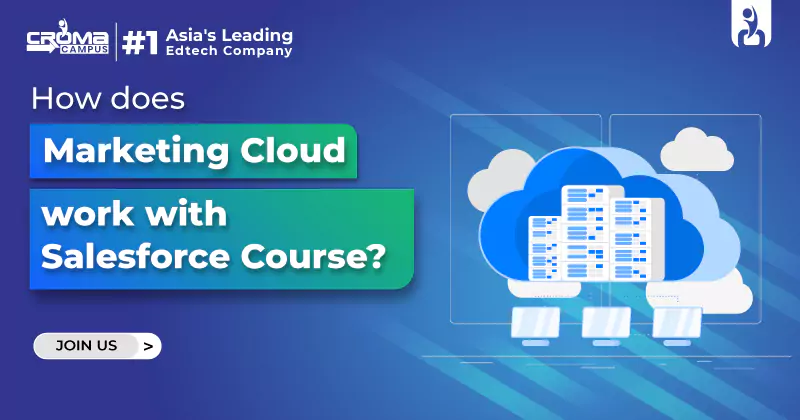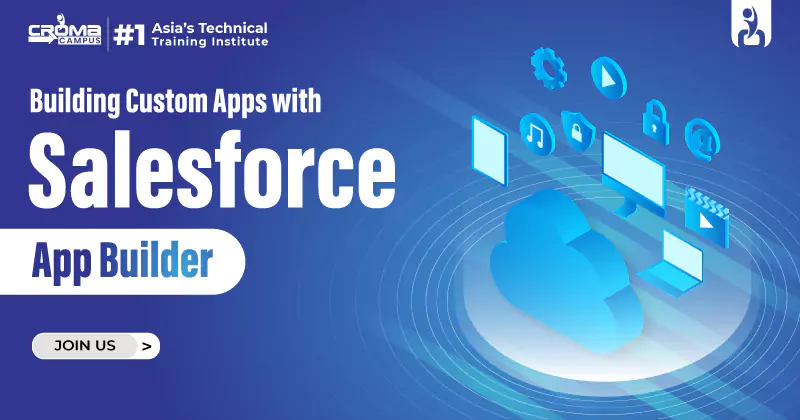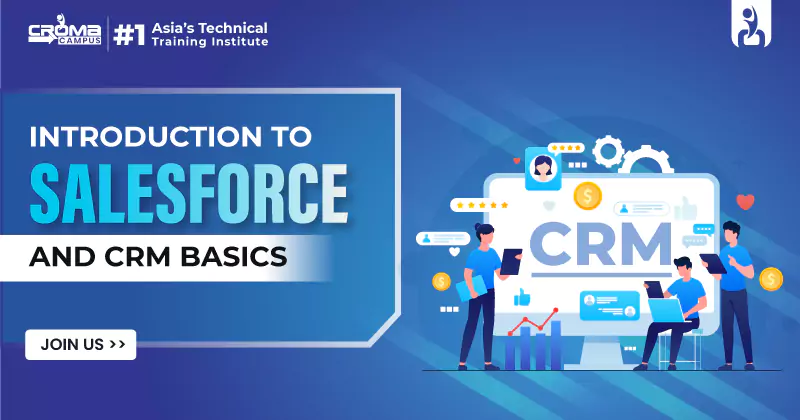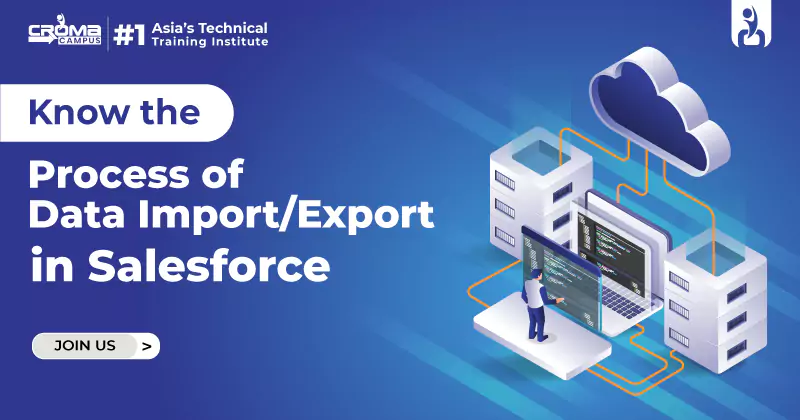What Is Salesforce: The Ultimate Guide For 2025
4.8 out of 5 based on 8745 votesLast updated on 12th Dec 2023 11.8K Views
- Bookmark

Discover the power of Salesforce! Uncover the leading CRM platform and revolutionize your business processes with cutting-edge technology.

Introduction
Salesforce is a cloud-based platform known primarily for its customer relationship management (CRM) software. The platform enables companies to streamline their sales, marketing, customer service, and more by providing a centralized hub for customer information accessible from anywhere. Furthermore, the Salesforce Certification Course enables professionals to learn various industry-relevant skills and become certified Salesforce experts. Salesforce is a widely-used CRM platform, and companies have a huge demand for Salesforce professionals, thereby, making it an ideal career choice.
This content serves as the ultimate guide to Salesforce for 2025. Read this section to know what Salesforce is, its services, architecture, and more.
What Is Salesforce?
As mentioned, Salesforce is one of the most popular CRM platforms. Salesforce's CRM system allows organizations to track leads, manage contacts, automate tasks, and analyse data to make informed decisions. It is highly customizable, allowing businesses to tailor their CRM to suit their specific needs through various apps, integrations, and configurations.
Beyond CRM, Salesforce offers a wide range of cloud-based solutions, including Salesforce Marketing Cloud, Service Cloud, Commerce Cloud, and more. These modules cater to different business functions, helping companies of all sizes enhance their operations, improve customer relationships, and drive growth by leveraging the power of cloud technology and data-driven insights.
Why Use Salesforce?
Salesforce offers several compelling reasons for businesses to choose its platform. Firstly, it centralizes customer data, providing a comprehensive view of customer interactions. This empowers businesses to personalize their engagements, anticipate needs, and enhance customer satisfaction.
Secondly, its scalability accommodates businesses of all sizes, enabling startups to enterprise-level organizations to tailor their CRM systems to their unique requirements. The platform's flexibility allows for easy customization, ensuring it adapts as a company grows or changes.
Moreover, Salesforce's cloud-based nature ensures accessibility from anywhere, promoting collaboration among teams and facilitating remote work seamlessly. Its robust ecosystem of apps and integrations offers solutions for sales, marketing, service, analytics, and more.
Lastly, Salesforce regularly updates its platform, incorporating the latest technological advancements and security features, ensuring users benefit from cutting-edge innovations while maintaining data safety and compliance.
Also Read This Post:
Salesforce Admin Certification Cost In India
Best Salesforce Developer Certifications
Salesforce Interview Questions and Answers
What Does Salesforce Do?
Salesforce is a cloud-based platform that offers a suite of customer relationship management (CRM) services. This platform enables businesses to manage and analyse customer interactions and data. It helps companies streamline sales processes, automate marketing campaigns, and enhance customer service. Salesforce provides tools for data organization, lead tracking, analytics, and collaboration, allowing businesses to gain insights into customer behaviour and preferences. Furthermore, its customizable nature allows for tailored solutions across industries, fostering better customer relationships and driving growth.
How Does Salesforce Work?
Salesforce operates as a cloud-based CRM platform, serving as a centralized hub for businesses to manage various aspects of their customer relationships. It stores data securely in the cloud, accessible anytime and anywhere, eliminating the need for on-premises software installation. Its architecture allows for customization and integration with other systems.
Users access Salesforce through a web browser or mobile app, interacting with its modules tailored for sales, marketing, customer service, and more. They input and retrieve data related to leads, contacts, accounts, opportunities, and cases, fostering a comprehensive understanding of customer interactions.
Salesforce employs automation tools like workflows, triggers, and process builders to streamline repetitive tasks, improving efficiency. Its reporting and analytics capabilities provide insights into sales pipelines, campaign performance, and customer behaviour, aiding strategic decision-making.
Moreover, Salesforce offers a marketplace of third-party applications and integrations through its AppExchange, expanding functionality and addressing specific business needs. Overall, Salesforce works by centralizing data, automating processes, and facilitating meaningful customer engagement across diverse industries.
Lists Of Salesforce Certifications:
| Salesforce Role | Certifications |
| Salesforce Administrator | Administrator, Advanced Administrator, Business Analyst•, CPQ Specialist, Marketing Cloud Administrator•, Platform App Builder |
| Salesforce Architect | Application Architect, B2B Solution Architect, B2C Solution Architect, B2C Commerce Architect, Heroku Architect, System Architect, Technical Architect |
| Salesforce Developer | B2C Commerce Developer, Industries CPQ Developer, JavaScript Developer I, Marketing Cloud Developer•, Platform Developer I, Platform Developer II |
| Salesforce Marketer | Marketing Cloud Administrator•, Marketing Cloud Consultant•, Marketing Cloud Developer•, Marketing Cloud Email Specialist, Pardot Consultant, Pardot Specialist |
| Salesforce Consultant | Business Analyst•, Education Cloud Consultant, Experience Cloud Consultant, Field Service Consultant, Marketing Cloud Consultant•, Nonprofit Cloud Consultant, OmniStudio Consultant, Pardot Consultant, Sales Cloud Consultant, Service Cloud Consultant, Tableau CRM & Einstein Discovery Consultant |
| Salesforce Designer | User Experience (UX) Designer, Strategy Designer |
The Top Benefits of Salesforce
Here are the top benefits of using Salesforce.
- Enhanced Customer Relationships: Salesforce provides a comprehensive view of customer data, enabling businesses to personalize interactions, anticipate needs, and deliver exceptional service.
- Improved Efficiency: Moreover, its automation tools streamline repetitive tasks, reducing manual effort and freeing up time for employees to focus on more critical activities. Workflows, process automation, and AI-driven insights boost overall operational efficiency.
- Scalability and Customization: Salesforce is highly scalable, catering to businesses of all sizes. Its customizable nature allows for tailoring solutions to specific needs, ensuring that companies can adapt and grow without technological limitations.
- Insightful Analytics: Furthermore, the platform offers robust reporting and analytics features that provide actionable insights into sales pipelines, customer behaviour, and marketing campaigns.
- Accessibility and Collaboration: Additionally, with a cloud-based system accessible across devices, Salesforce enables seamless collaboration among teams, regardless of geographical location. This fosters teamwork, knowledge sharing, and a unified approach toward customer engagement, leading to better outcomes.
Also, For more information visit here: Microsoft Azure Course Online
Conclusion
In summary, Salesforce stands as a multifaceted platform catering to diverse business needs, from customer relationship management to marketing, sales, service, analytics, and beyond. Its scalable, cloud-based architecture and robust suite of services empower organizations considerably. Professionals can learn Salesforce Online Course to streamline operations, personalize customer interactions, and make informed decisions. Through continuous innovation, integrations, and industry-specific solutions, Salesforce remains at the forefront of revolutionizing how businesses engage with customers, collaborate internally, and drive growth. Its adaptability, focus on customer-centricity, and commitment to technological advancements make Salesforce a pivotal choice for companies.
FAQs
1. How can businesses use Salesforce?
Businesses can use Salesforce to manage customer relationships, automate sales processes, track leads and marketing campaigns, provide customer support, and gain insights through analytics and reporting.
2. What is the scope of Salesforce?
The scope of Salesforce spans diverse industries, supporting businesses of varying sizes to manage customer relationships, streamline operations, and drive growth through customizable CRM solutions and integrations.
3. Is Salesforce an IT job?
Yes, Salesforce offers various job opportunities within the realm of Information Technology (IT), including roles like Salesforce administrator, developer, consultant, architect, and analyst.
Subscribe For Free Demo
Free Demo for Corporate & Online Trainings.
Your email address will not be published. Required fields are marked *





















 Master in Cloud Computing Training
Master in Cloud Computing Training